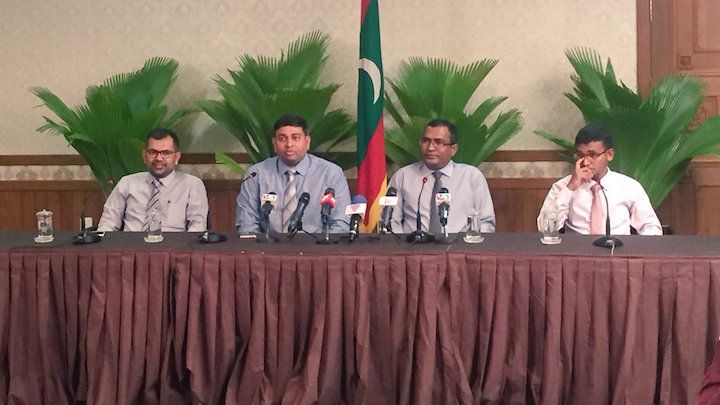State fisheries and trading companies merged
President Abdulla Yameen has decided to bring the debt-ridden and loss-making state-owned Maldives Industrial Fisheries Company under the umbrella of the behemoth State Trading Organisation.

01 Oct 2016, 09:00
President Abdulla Yameen has decided to bring the debt-ridden and loss-making state-owned fisheries company under the umbrella of the behemoth State Trading Organisation.
The cabinet’s economic council announced the merger at a press conference Thursday afternoon, citing the canned tuna exporter’s “inefficiencies” and the benefits of combining resources.
Finance Minister Ahmed Munawar said the “synergy” is a first step toward building a sustainable business model for Maldives Industrial Fisheries Company, which was dependent on millions of rufiyaa worth of subsidies annually.
The move is necessary because domestic and foreign banks were unwilling to lend to MIFCO, he said.
Become a member
Get full access to our archive and personalise your experience.
Already a member?
Discussion
No comments yet. Be the first to share your thoughts!
No comments yet. Be the first to join the conversation!
Join the Conversation
Sign in to share your thoughts under an alias and take part in the discussion. Independent journalism thrives on open, respectful debate — your voice matters.




